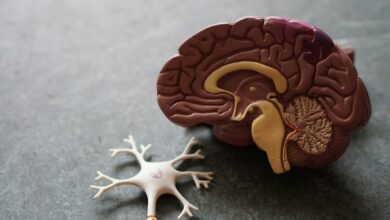6 Best Tips On Creating A Diet Suitable To Your Needs

Keeping a balanced diet is one of the most important things you can do to stay healthy. A balanced diet must contain a variety of foods from each food group: vitamins, fiber, fat, protein, carbohydrates, and water. The trick, however, is knowing how much of each food you should eat to meet your daily nutrition goals.
Because there are so many foods and conflicting opinions on which ones are healthy, it isn’t easy to keep track of foods. However, creating a diet is not as hard as it sounds. With the right advice and guidance, putting together your diet is much easier than you think.
The following part offers some of the best tips on creating a diet tailored to your needs, whether you want to lose weight or improve your eating habits.
1. Calculate Your Nutritional Needs
Before you think about dieting, you must determine your exact nutrient needs. Doing this will assist you in figuring out how much of each food group you should eat to achieve a balanced diet.
Calculating your nutrient needs can be a headache, as many different calculators are available. We recommend using a nutrient value calculator to help you with this. With a nutrition calculator, you can enter your personal information. Based on this information, you will then get a breakdown of your daily nutrient needs. For the best results, be as accurate as possible when entering your data.
Remember, nutrient needs can vary from person to person and depend on many different factors, including age, weight, and lifestyle. If you are unsure how much you should eat, you can talk to your nutritionist.
2. Find The Right Foods
Once you know your nutrient needs, the next step is to find the right foods to meet your health goals. While every diet is unique, there are some basic principles for a healthy diet. It usually consists of fresh, plant-based foods and less processed ones. Such a diet allows you to enjoy a variety of foods with healthy fats, proteins, carbohydrates, minerals, and vitamins while avoiding added sugars.
If you are considering losing weight, your diet should include adequate protein. Protein helps build muscle and is essential for a healthy metabolism. It also increases feelings of fullness while reducing cravings. According to research, the recommended daily protein intake for adults over 19 years of age is 0.8 g per kg of body weight.
3. Stay Full Longer
When putting together your diet, you should ensure that you stay full longer. One way to do this is to include more fiber in your diet. Dietary fiber is a carbohydrate found in various plant foods, such as fruits and vegetables.
Eating more fiber has been shown to increase feelings of fullness, which can be helpful if you are trying to lose weight. Fiber can also lower the risk of certain diseases, such as heart disease and type-2 diabetes.
You can increase the amount of fiber in your diet by eating more fruits and vegetables and taking fiber. However, when adding fiber to your diet, be careful not to increase your calorie intake. Overeating fiber can lead to digestive problems, such as bloating, cramps, abdominal pain, and even diarrhea.
4. Learn The Right Way to Prepare Your Food
It is not enough to choose the right food groups for your diet; you need to know the right way to prepare them. Cooking can reduce the number of certain nutrients in your food.
If you overcook vegetables, their fiber content may decrease. This is because cooking vegetables can cause them to lose up to 50% of their fiber content.
Cooking foods incorrectly can also make them less nutritious. For instance, cooking foods can destroy the vitamin C content. In addition, cooking protein-rich foods, such as eggs, meat, and fish, at high temperatures can reduce their protein content. This is because protein is water-soluble.
5. Create a Meal Plan
Creating a meal plan will help you stick to your meals. A meal plan can also encourage you to make better food choices. This is because it gives you time to prepare your meals and think carefully about what you eat. It also makes avoiding high-calorie and unhealthy foods easier when you are hungry.
If you’re having trouble making your meal plan, first decide how many times you want to eat per day, and then determine what types of meals and snacks you want. Finally, plan your meals and snacks accordingly.
6. Monitor and Adjust
Once you’ve created your diet plan, you should monitor your progress. This will help you stay on track and avoid relapse. There are numerous ways one can monitor progress. Some examples include weighing yourself, keeping a food diary, measuring your body parts, and using fitness trackers.
It’s also important to adjust your diet as you go. This will allow you to make necessary changes as your body adapts to your new diet. To monitor and adjust your diet, evaluate your daily calorie intake and keep track of your daily macronutrient intake.
You can monitor your daily calorie intake using a food diary, a calorie counting app, or a website. Alternatively, you can use an online nutrition calculator to help you keep track of your macronutrient intake.
Conclusion
Creating a nutrition plan is an essential part of staying healthy. However, determining what foods to eat and how much of each food group to consume can be challenging. Before you create a nutrition plan, you need to know your nutrient needs. Once you have this information, you can use these tips to create a balanced diet that meets your needs.
Apart from this if you are interested to know about Health Can Be Improved By Diet And Nutrition then visit our Health category.



